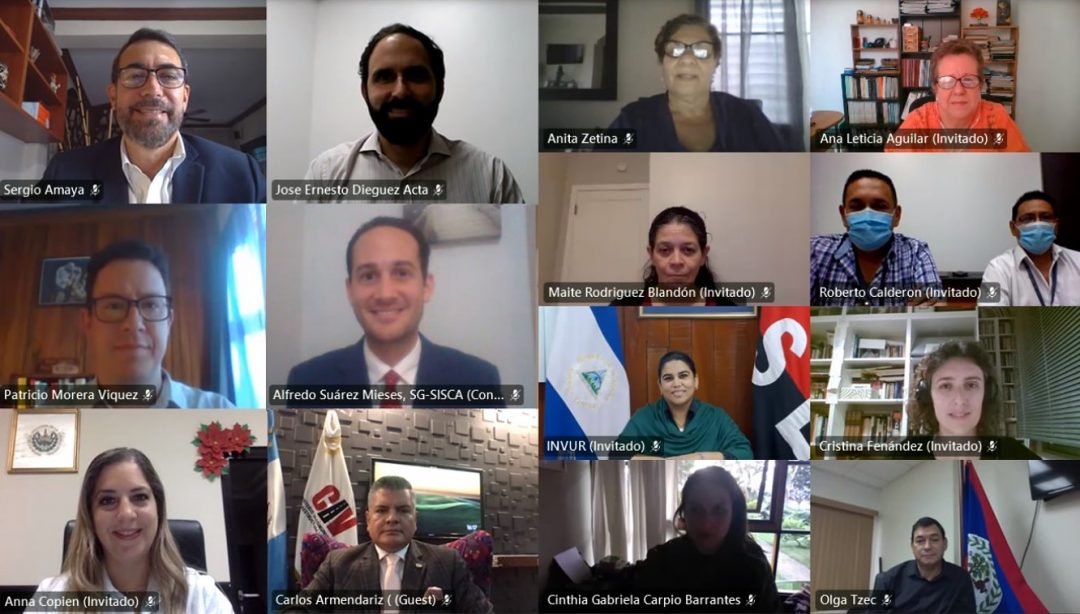The EUROsociAL+ Programme has accompanied the development of the Plan for the Recovery, Social Reconstruction and Resilience of Central America and the Dominican Republic, which the EU will continue to support during its implementation

The Heads of the different Social Cabinets of the SICA region that make up the Council for Central American Social Integration (CIS) approved the Plan for the Recovery, Social Reconstruction and Resilience of Central America and the Dominican Republic, at the 73rd Regular Meeting of the Council.
During the meeting, Ministers emphasised that the recovery and reconstruction of the region would require multiple and creative responses in terms of public policies to support the most vulnerable in society, with this work including the search for alternatives to obtain technical and financial resources that leverage the sustainability of interventions. The latter meaning that it will be necessary as a region to continue promoting cooperation and to increase it with international organisations, to strengthen multilateralism and increase external financing under fair conditions.
“The Plan’s objective is to articulate the public sector responses regarding social and labour problems, and regarding the land management of human settlements and the urban development of SICA member countries and provide them with a regional integration perspective, in the post-COVID social and economic reactivation phases,” expressed Alfredo Suárez Mieses, a SISCA representative.
Likewise, it seeks to contribute to creating transformations to generate resilience as a response not only to the effects caused by COVID-19 but also to the climate vulnerability situation of the region.
“This Plan provides a regional social platform, not as an alternative but as a counterweight to the economic dimension, to generate measures, programmes and instruments that promote social welfare. We hope that both the Comprehensive Regional Social Policy 2020-2040 and the Plan will build resilience and the capacity of Central American societies to resist and cope with future crises, a challenge that can be achieved by working together. As the European Union that we are, we will be accompanying this process,” said Francesco Chiodi, coordinator of the Social Policies Area of EUROsociAL+
From a regional perspective, the instrument contributes to support the work that each of the countries carries out and their efforts not to stray from the path of compliance with the 2030 Agenda. In addition, it is aligned with the provisions of the SICA Comprehensive Regional Social Policy 2020-2040 (PSIR-SICA), and the Regional Intersectoral Agenda on Social Protection and Productive Inclusion with Equity (ARIPSIP), which are strategic instruments that set priorities for intersectoral work in favour of social issues in the System, and that in particular cover social issues caused by climate change.
“Our people are on a par with all the fraternal peoples of Central America in this struggle to recover again. Working closely with the population is the rationale for our work,” stated Guillermo González, Minister-Director of the National System for Disaster Prevention, Mitigation and Response and Pro Tempore President of CIS for the Republic of Nicaragua
The Plan’s development has been carried out taking into consideration the inputs and work priorities collected through a broad process of technical consultation with representatives of the bodies that make up this Council, the Ministries or Secretaries of Labour and Social Welfare; and the governing bodies of the Housing and Human Settlements Sector in the region.
The Council appreciated the valuable support of the European Union, through its Programme for Social Cohesion in Latin America EUROsociAL+, as well as the technical review of the Food and Agriculture Organization of the United Nations (FAO), the International Labor Organization (ILO) and the United Nations Programme for Human Settlements UN Habitat.
Source: SISCA



